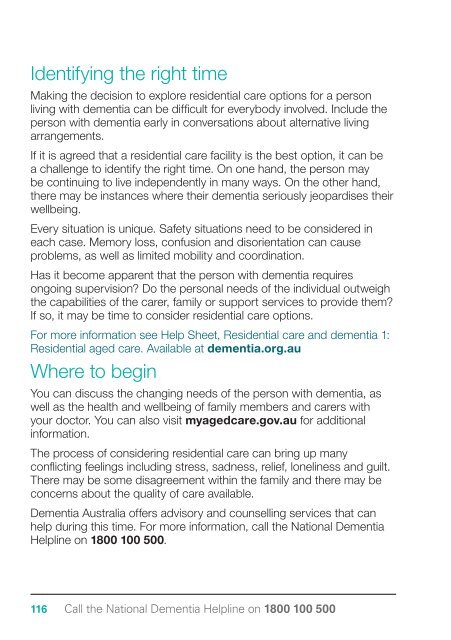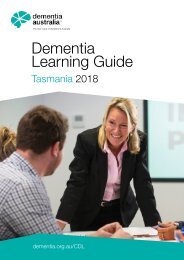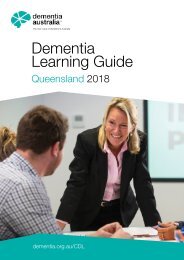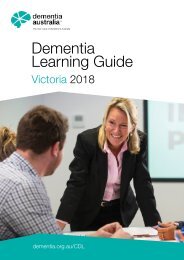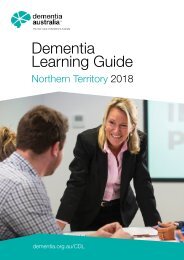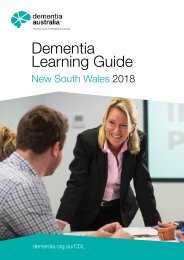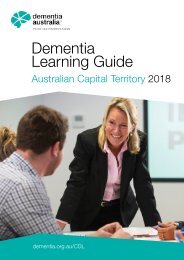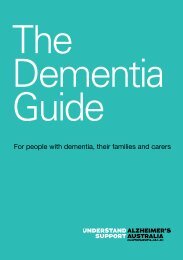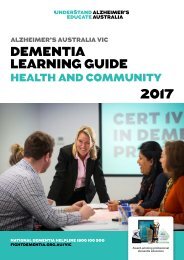Dementia Australia | The Dementia Guide
The Guide will also be used by the family and friends of someone with dementia, as it will contain information for anyone taking on a caring role. It will help people to understand more about dementia and the emotional impact of a diagnosis, the available drug treatments, and support and services that are available. It will include information about living well with dementia and about making plans for the future.
The Guide will also be used by the family and friends of someone with dementia, as it will contain information for anyone taking on a caring role. It will help people to understand more about dementia and the emotional impact of a diagnosis, the available drug treatments, and support and services that are available. It will include information about living well with dementia and about making plans for the future.
Create successful ePaper yourself
Turn your PDF publications into a flip-book with our unique Google optimized e-Paper software.
Identifying the right time<br />
Making the decision to explore residential care options for a person<br />
living with dementia can be difficult for everybody involved. Include the<br />
person with dementia early in conversations about alternative living<br />
arrangements.<br />
If it is agreed that a residential care facility is the best option, it can be<br />
a challenge to identify the right time. On one hand, the person may<br />
be continuing to live independently in many ways. On the other hand,<br />
there may be instances where their dementia seriously jeopardises their<br />
wellbeing.<br />
Every situation is unique. Safety situations need to be considered in<br />
each case. Memory loss, confusion and disorientation can cause<br />
problems, as well as limited mobility and coordination.<br />
Has it become apparent that the person with dementia requires<br />
ongoing supervision? Do the personal needs of the individual outweigh<br />
the capabilities of the carer, family or support services to provide them?<br />
If so, it may be time to consider residential care options.<br />
For more information see Help Sheet, Residential care and dementia 1:<br />
Residential aged care. Available at dementia.org.au<br />
Where to begin<br />
You can discuss the changing needs of the person with dementia, as<br />
well as the health and wellbeing of family members and carers with<br />
your doctor. You can also visit myagedcare.gov.au for additional<br />
information.<br />
<strong>The</strong> process of considering residential care can bring up many<br />
conflicting feelings including stress, sadness, relief, loneliness and guilt.<br />
<strong>The</strong>re may be some disagreement within the family and there may be<br />
concerns about the quality of care available.<br />
<strong>Dementia</strong> <strong>Australia</strong> offers advisory and counselling services that can<br />
help during this time. For more information, call the National <strong>Dementia</strong><br />
Helpline on 1800 100 500.<br />
116 Call the National <strong>Dementia</strong> Helpline on 1800 100 500


